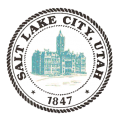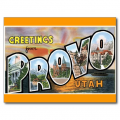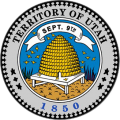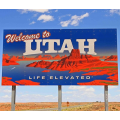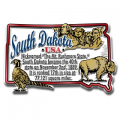Missouri’s variety of nursing programs offers a path for all aspiring nurses to join the healthcare profession, regardless of their prior work experience or educational background. Below we profile the four most critical roles in Missouri’s nursing industry.
Latest articles
Salt Lake City has a dozen accredited nursing schools. These colleges and universities offer a diverse range of nursing programs, from brief certificates to undergraduate and graduate degrees. The city’s aspiring nurses can pursue one of four nursing roles: certified nursing assistant (CNA), licensed practical nurse (LPN), registered nurse (RN), or advanced practice registered nurse (APRN).
The Provo / Orem metropolitan area has a half-dozen accredited nursing schools. These institutions offer prelicensure programs for four distinct nursing roles: certified nursing assistant (CNA), licensed practical nurse (LPN), registered nurse (RN), and advanced practice registered nurse (APRN).
Ogden’s aspiring nurses can choose from several different nursing career paths. Each nursing role carries a distinct set of responsibilities, educational requirements, and compensation.
Certified nursing assistant (CNA)
Master of science in nursing (MSN) degree programs enable Utah’s existing registered nurses (RNs) to enter specialized fields like family practice nursing, nursing education, and nursing administration. Upon completion of their studies, many MSN candidates earn an advanced practice registered nursing (APRN) title like nurse practitioner, nurse midwife, or nurse anesthetist.
Utah’s healthcare providers increasingly expect registered nurses (RNs) to perform a broad range of independent tasks and to fill critical managerial roles. As a result, many top hospitals and healthcare centers actively seek RNs with at least a bachelor of science in nursing (BSN) degree. Utah has two types of BSN programs: prelicensure programs that prepare aspiring nurses for initial licensure, and RN-to-BSN programs that help existing nurses with only an associate’s degree earn their bachelor’s degree.
An associate’s degree in nursing (ADN) program provides a streamlined path to initial licensure as a registered nurse (RN). RNs comprise the majority of Utah’s nursing workforce. Their responsibilities include independently administering healthcare activities and supervising the work of junior nurses, like licensed practical nurses (LPNs) and certified nursing assistants (CNAs).
Licensed practical nurses (LPNs) provide bedside care for patients. They also independently conduct a number of medical tasks like recording vital signs, dressing wounds, and monitoring equipment. Licensed practical nurses work in a number of healthcare settings, frequently under the supervision of registered nurses (RNs) or physicians.
After several years of practice as a registered nurse (RN), many RNs make the decision to advance their careers. This often requires an advanced degree such as a master of science in nursing (MSN). The MSN degree prepares students to become advanced practice registered nurses (APRNs) and fill specialized roles such as nurse practitioner, nurse midwife, and nurse anesthetist.
An overview of MSN programs
A bachelor of science in nursing (BSN) is one of the most respected degrees for a registered nurse (RN). These programs have enjoyed significant interest recently, as employers increasingly prefer BSN candidates for new hires and promotions. Bachelor’s degree-holders are best prepared for the complex decision-making in today’s healthcare industry.
Overview of BSN programs


